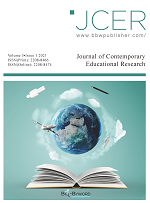Abstract
Studies have shown that accidents caused by human error account for 70-80% of the total number of accidents, and are the primary cause of casualties. In order to reduce the risk of safety accidents and reduce the human-caused accident rate, the evaluation index of safety occupational adaptability of coal excavation workers has been studied. Questionnaire survey method was used to conduct 13 physical and psychological abilities tests on 50 coal tunneling workers, and select the core ability indicators that reflect the mental load of the workers and the individual priority allocation of psychological resources. Secondly, using the Delphi method and the quartile method, the opinions of 20 experts in related fields were sought anonymously, and the main physical and mental ability indicators were screened and filtered through scoring methods. Finally, six indicators of “accuracy, attention, rapid response ability, proficiency, judgment, and foresight” were determined as the main physical and psychological indicators of coal tunneling workers. This study fills up the gap of safety occupational adaptability in the field of mining construction, and has important theoretical value and practical significance.
References
Duan L-Z, 2006, Study on the Safety Management in Construction. Chongqing University, Chongqing.
Wen D-D, 1996, On Human Error. China Safety Science Journal, 1996(6), Supp.: 85-9.
Li S, Su L-B, Song S-X, 2010, Review of Studies on Psychological Workload of Workers in Man-Machine System. Journal of Beijing Jiaotong University (Social Sciences Edition), 9(3): 54-8.
Li S, 2010, The Study of the Safety Occupation Aptitude Based on Mental Resource. Beijing Jiaotong University, Beijing.
Liu C-Q, Xu G-G, Shi M, 2001, The Revision of Hearst’s Career Assessment System and the Initial Establishment of Regional Norms. New Exploration of Psychology, 20(80): 51-65.
Jin H-Q, 1996, Research and Application of Occupational Suitability of Chinese Motor Vehicle Drivers. Chinese Journal of Trauma, 1(32): 171-2.
Song S-X, 2003, Accident Tendency and Human Factor Management. China Power Enterprise Management, 2003(12): 32-3.
Ye L, Xiang F-F, Shen M, et al., 2003, Study on Human Safety Evaluation. China Safety Science Journal, 13(10): 11-4.
Li S, Song S-X, 2010, Research on Safety Occupational Adaptability Indexes of Power System Operators. Productivity Research, 7(36): 97-9.
Gao C-S, Zhu Z-S, Lu D-M, 1996, Evaluation and Application of Occupational Adaptability Test. Engineering Safety and Dust Prevention, 1996(1): 21-5.
Jin H-Q, 2000, Test and Evaluation of Occupational Suitability Inspection System for Electrical Workers. Ergonomics, 2000(2): 54-5.
Wu K, Zhang B-D, Yao H-X, 1997, Strategy and Method for Studying the Professional Adaptability for Operators of Dangerous Installation. China Safety Science Journal, 7(4): 17-22.
Ye L, Shen M, Fu J-F, et al., 1997, Study on the Relationship between Engine Drivers’ Physiological and Psychological Diatheses and Safe Driving on Railway. China Safety Science Journal, 7(6): 53 -7.
Jin H-Q, Zhang S-L, Dai P, et al., 2000, Research on Comprehensive Evaluation of Motor Vehicle Drivers’ Psychological Quality. Chinese Journal of Epidemiology, 21(5): 369 -71.
Ou S-C, Ye L, Shen M, et al., 2003, Research on Occupational Adaptability of Power Enterprise Operators. Northern Economy, 2003(10): 39-43.
